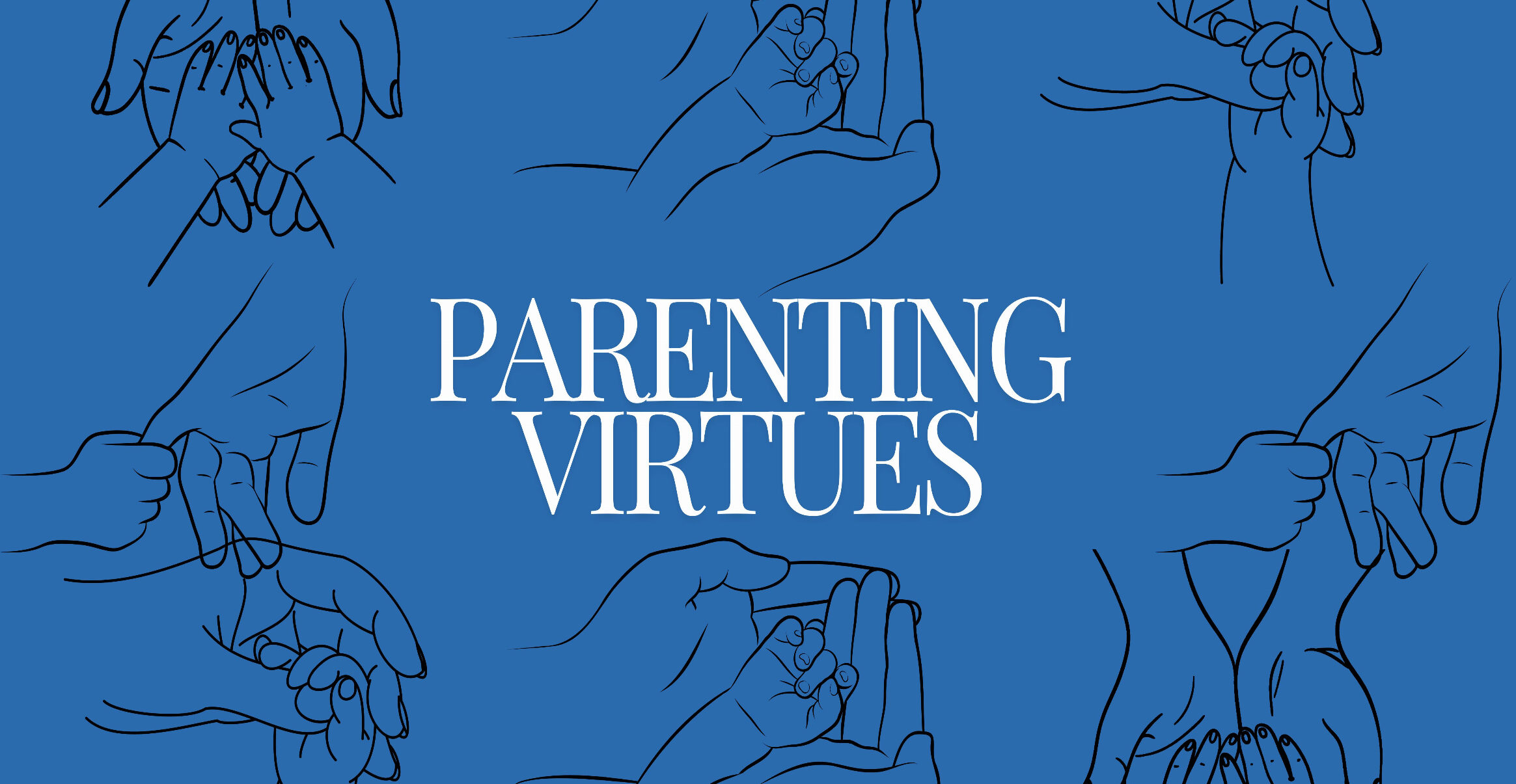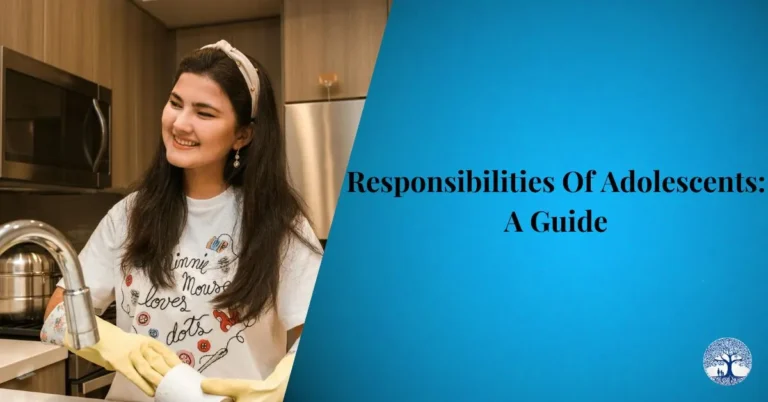Introduction
In today’s fast-paced world, it’s essential for teenagers to take on responsibilities at home, not just as a contribution to the household, but as a vital step in their personal growth. When teenagers are entrusted with tasks and duties, they learn to manage their time, develop a sense of accountability, and build essential life skills that will serve them well into adulthood.
The importance of chores and responsibilities at this age goes beyond the immediate benefit of a tidy room or completed task—it shapes their character, fosters independence, and prepares them for the challenges of the real world. As parents and guardians, encouraging teenage responsibility at home is one of the most impactful ways to set them on the path to becoming well-rounded, capable adults.
Why Teenagers Should Have Responsibilities at Home
Building Life Skills
One of the key benefits of teenage responsibilities is the development of essential life skills. When teenagers take on tasks such as managing their time, helping with household chores, or taking care of pets, they are actively learning how to navigate real-world challenges. These experiences teach them practical skills like time management, problem-solving, and basic financial literacy, all of which are crucial for their future. By giving teenagers responsibilities at home, parents are helping to equip them with the tools they need to succeed independently in adulthood. This hands-on learning approach is invaluable, as it prepares them to handle life’s complexities with confidence and competence.
Fostering Independence
Responsibilities at home play a pivotal role in fostering independence in teenagers. As they take on various duties, they begin to understand the value of self-reliance and the importance of being accountable for their actions. This gradual shift towards independence helps teenagers develop a strong sense of responsibility, which is critical as they transition into adulthood. By encouraging them to manage their own tasks—whether it’s maintaining personal hygiene, preparing simple meals, or organizing their schedules—parents are helping their teenagers to build the confidence and independence needed to thrive outside the family environment. This sense of responsibility not only prepares them for future challenges but also lays the foundation for becoming mature, self-sufficient adults.
Keeping Their Room Clean
Importance of Maintaining Personal Space and Cleanliness
One of the foundational responsibilities for teenagers at home is keeping their room clean. This task, while seemingly simple, holds significant importance in helping teenagers develop a sense of order and discipline. Maintaining a clean room teaches teenagers the value of personal space and the positive impact that a tidy environment can have on their mental well-being.
Encouraging Responsibility Through Cleanliness
A clutter-free room not only creates a conducive atmosphere for studying and relaxation but also instills a habit of organization that can extend to other areas of their life. By taking ownership of their space, teenagers learn to take pride in their surroundings, understand the importance of cleanliness, and build routines that promote a balanced lifestyle. Encouraging teenagers to regularly clean their room is a small but crucial step in helping them develop into responsible and conscientious adults.

Helping with Household Chores
Role of Teenagers in Contributing to Daily Chores
Involving teenagers in household chores is a vital aspect of their development and a key responsibility at home. Tasks like doing the laundry, washing dishes, and vacuuming might seem routine, but they play an essential role in teaching teenagers about teamwork, responsibility, and the effort required to maintain a household. By participating in these daily chores, teenagers learn to appreciate the work that goes into keeping a home running smoothly and understand that they are a crucial part of the family unit.
Developing Practical Life Skills
This sense of contribution fosters a spirit of cooperation and instills a work ethic that will serve them well in the future. Additionally, these responsibilities help teens develop practical skills that are indispensable as they move towards independence. Encouraging teenagers to regularly engage in household chores not only lightens the load for everyone but also prepares them for the demands of adult life.
Managing Their Time
Importance of Time Management for Teenagers
Time management is a critical responsibility that teenagers must master as they juggle homework, household chores, and personal activities. Learning how to effectively manage their time teaches teenagers the value of prioritizing tasks, setting realistic goals, and maintaining a balanced lifestyle. With increasing academic demands and social engagements, teenagers who develop strong time management skills are better equipped to handle stress and meet deadlines without feeling overwhelmed.
Developing a Balanced Routine
By allocating specific time slots for study, chores, and relaxation, they can ensure that no aspect of their life is neglected. This balance not only leads to better academic performance but also fosters a sense of discipline that is essential for success in all areas of life. Encouraging teenagers to take responsibility for managing their time is an important step in preparing them for the challenges and responsibilities of adulthood.
Taking Care of Younger Siblings
Role of Older Teens in Babysitting and Mentoring
Taking care of younger siblings is a significant responsibility for older teenagers, offering them an opportunity to develop leadership and nurturing skills. By stepping into the role of a caregiver, teenagers learn the importance of patience, empathy, and effective communication. Whether it’s babysitting while parents are away or helping with homework, older teens play a crucial part in guiding and mentoring their younger siblings. This responsibility not only strengthens the bond between siblings but also instills a sense of maturity and accountability in the older teen.
Building Essential Life Skills
As they manage these tasks, they gain valuable experience in problem-solving and conflict resolution, skills that are essential for their personal growth and future family roles. Encouraging teenagers to take an active role in the care and mentorship of their younger siblings helps them develop a deeper sense of responsibility and prepares them for the complexities of adult relationships.

Assisting with Meal Preparation
Learning Basic Cooking Skills
Assisting with meal preparation is an essential responsibility for teenagers, offering them a chance to learn basic cooking skills and contribute meaningfully to the household. By engaging in meal prep, teenagers gain hands-on experience in planning, preparing, and cooking meals, which are valuable skills they will carry into adulthood. Whether it’s helping to chop vegetables, measure ingredients, or even plan a week’s worth of meals, these tasks teach teenagers the importance of nutrition, time management, and following instructions.
Contributing to Meal Planning
Furthermore, participating in the kitchen allows them to appreciate the effort that goes into feeding a family and encourages them to take pride in the food they help create. This responsibility also fosters creativity and independence, as teenagers experiment with new recipes and techniques. Encouraging teenagers to take part in meal preparation not only equips them with practical life skills but also strengthens family bonds through shared culinary experiences.
Managing Their Finances
Introduction to Budgeting
Teaching teenagers to manage their finances is a crucial responsibility that lays the foundation for their financial independence in the future. By introducing them to budgeting, saving, and understanding the value of money, parents equip their teens with essential skills that will help them navigate the complexities of financial management as adults. Budgeting teaches teenagers how to allocate their money wisely, whether it’s their allowance, part-time job earnings, or gifts, ensuring they understand the importance of distinguishing between needs and wants.
Importance of Saving
Saving, on the other hand, encourages them to set financial goals and delay gratification, fostering a sense of discipline that is vital for long-term financial success. Understanding the value of money also helps teenagers appreciate the effort required to earn it, promoting responsible spending habits.
Understanding the Value of Money
Encouraging teenagers to take an active role in managing their finances not only prepares them for future financial responsibilities but also empowers them to make informed decisions and build a secure financial future.
Taking Care of Pets
Responsibility of Feeding Pets
Taking care of family pets is a significant responsibility that can greatly benefit teenagers, providing them with valuable lessons in accountability and compassion. Feeding pets on a regular schedule ensures that they receive the necessary nutrition and maintain their health. This responsibility teaches teenagers the importance of consistency and the impact of their actions on others.
Importance of Walking Pets
Walking pets not only provides essential exercise for the animals but also allows teenagers to engage in physical activity and enjoy time outdoors. It’s an opportunity for them to develop a routine and learn about the needs of different animals.
Grooming and Maintenance
Grooming pets, whether it’s brushing their fur or keeping their living area clean, fosters a sense of care and respect for animals. These tasks collectively help teenagers build a strong sense of responsibility and empathy, as they understand the commitment required to care for another living being. By taking an active role in pet care, teenagers not only contribute to the well-being of their pets but also gain skills that enhance their maturity and sense of duty.

Maintaining Personal Hygiene
Importance of Daily Hygiene Practices
Maintaining personal hygiene is a fundamental responsibility for teenagers, playing a crucial role in their overall well-being and self-esteem. Daily hygiene practices, such as brushing teeth, showering, and washing hands, are essential for preventing health issues and promoting a clean, fresh appearance.
Emphasizing Personal Grooming
Personal grooming, including activities like hair care, skincare, and nail maintenance, further supports a teenager’s self-confidence and helps them present themselves positively in social and academic settings. By establishing and adhering to these hygiene routines, teenagers learn the importance of self-care and its impact on their health and social interactions.
Developing Healthy Hygiene Habits
Regular hygiene habits not only contribute to physical cleanliness but also foster a sense of discipline and responsibility. Encouraging teenagers to prioritize personal grooming and hygiene is crucial for their development into health-conscious and self-reliant adults.
Participating in Family Decisions
Encouraging Teenagers to Contribute to Family Discussions
Involving teenagers in family decisions is a crucial aspect of fostering their sense of responsibility and engagement within the household. Encouraging them to participate in family discussions helps them understand the dynamics of decision-making and the impact of their input on collective outcomes.
Impact of Teen Involvement on Family Dynamics
This involvement can range from contributing to decisions about family activities and budgeting to discussing future plans and problem-solving. By taking part in these discussions, teenagers learn valuable skills such as critical thinking, negotiation, and empathy. They also gain a deeper appreciation for the responsibilities that come with family roles and the importance of collaborative decision-making.
Preparing Teenagers for Future Roles
This sense of inclusion not only strengthens family bonds but also empowers teenagers to feel more invested in their home environment. Encouraging active participation in family decisions equips teenagers with essential life skills and prepares them for future roles in both personal and professional settings.
Managing Their Health
Understanding and Managing Physical Health
Managing their health is a vital responsibility for teenagers, encompassing both physical and mental well-being. Understanding and maintaining physical health involves regular exercise, balanced nutrition, and adequate sleep. Encouraging teenagers to adopt healthy lifestyle habits, such as engaging in physical activities, eating a varied diet, and prioritizing rest, plays a crucial role in their overall health and development. This responsibility helps them establish a foundation for a lifetime of healthy habits and enhances their physical fitness and energy levels.
Addressing Mental Health Awareness
Equally important is mental health, which involves recognizing and addressing emotional and psychological needs. Teenagers should be encouraged to develop coping strategies for stress, practice mindfulness, and seek support when needed. Awareness of mental health issues and promoting open communication about emotions and challenges can significantly impact their emotional resilience and well-being.
Building a Foundation for Long-Term Well-Being
By taking proactive steps to manage both physical and mental health, teenagers can build a robust support system that fosters their overall growth and prepares them for the complexities of adult life. Supporting teenagers in these aspects not only helps them thrive in their current environment but also equips them with the skills necessary for long-term health and happiness.
Tips for Parents on Encouraging Responsibility
Positive Reinforcement
Positive reinforcement is a powerful tool for encouraging teenagers to adopt and maintain responsible behavior. By recognizing and rewarding their efforts, parents can reinforce desirable actions and motivate their teens to continue meeting expectations. Rewards can range from verbal praise and increased privileges to tangible incentives like allowances or special outings. This approach not only helps teens feel appreciated but also strengthens their commitment to taking on responsibilities. Effective positive reinforcement involves being specific about what behavior is being praised, ensuring that rewards are meaningful to the teenager, and providing consistent feedback. This method fosters a positive relationship between parents and teens, making the process of developing responsibility a more engaging and supportive experience.
Setting Expectations
Establishing clear guidelines and expectations is essential for helping teenagers understand their responsibilities and the standards they are expected to meet. Parents should communicate these expectations openly and consistently, ensuring that teenagers are aware of their roles and the consequences of their actions. Setting specific, achievable goals and providing a structured framework for meeting them can help teens manage their responsibilities more effectively.
It’s important to involve teenagers in the process of setting these guidelines, allowing them to have a say in how they meet expectations. This involvement promotes a sense of ownership and accountability, making it more likely that they will adhere to the established standards. Clear expectations and consistent follow-through from parents create an environment where responsibility is valued and practiced regularly.
Conclusion
In summary, the various responsibilities that teenagers undertake at home play a pivotal role in their development into responsible, capable adults. From maintaining personal hygiene and managing finances to assisting with household chores and participating in family decisions, each responsibility contributes to building essential life skills and fostering independence. By taking on these roles, teenagers learn the importance of accountability, develop practical skills, and gain a deeper understanding of their impact on the household. These experiences are integral to their growth, preparing them for future challenges and instilling a sense of confidence and maturity. Encouraging teenagers to embrace these responsibilities not only benefits their personal development but also enhances their readiness for the complexities of adult life.
Check out our blog 18 Year-Old Not Taking Responsibility, for more such content!
Frequently Asked Questions (FAQs)
1. What are some common responsibilities teenagers should have at home?
Teenagers should take on a range of responsibilities at home to help develop their independence and life skills. Common responsibilities include keeping their room clean, helping with household chores such as laundry and dishes, managing their time effectively for homework and activities, and taking care of younger siblings. Additionally, they should assist with meal preparation, manage their personal finances, and care for family pets. Each of these tasks contributes to their growth and prepares them for future adult responsibilities.
2. Why is it important for teenagers to have responsibilities at home?
Assigning responsibilities to teenagers is crucial for their personal development. It helps them build essential life skills such as time management, financial responsibility, and problem-solving. Moreover, taking on household tasks fosters a sense of independence and accountability, preparing them for the challenges of adulthood. By contributing to the household, teenagers also learn to appreciate the effort involved in maintaining a home, which strengthens their family bonds and promotes a balanced sense of responsibility.
3. How can parents encourage their teenagers to take on responsibilities at home?
Parents can encourage teenagers to take on responsibilities by using positive reinforcement, such as verbal praise and rewards, to acknowledge their efforts. Setting clear expectations and involving teenagers in discussions about household responsibilities can also help them understand their roles and the impact of their contributions. Creating a structured environment where responsibilities are assigned and monitored, while allowing teens some autonomy, helps them develop a sense of ownership and commitment to their tasks.
4. What are effective ways for teenagers to manage their time with various responsibilities?
Effective time management for teenagers involves creating a structured schedule that balances homework, chores, and personal activities. Teens can use tools such as planners or digital calendars to keep track of their tasks and deadlines. Prioritizing responsibilities and setting specific goals for each day can also help them stay organized. Additionally, learning to break large tasks into manageable steps and avoiding procrastination are key strategies for effective time management.
5. How do responsibilities at home prepare teenagers for adulthood?
Responsibilities at home provide teenagers with practical experience in managing their daily lives, which is essential for adulthood. Tasks such as budgeting, cooking, and cleaning teach them valuable skills that will be crucial when they live independently. Additionally, handling responsibilities helps them develop a strong work ethic, problem-solving abilities, and the capacity to make informed decisions. These experiences collectively prepare teenagers for the demands and challenges they will face as adults, equipping them with the tools needed for a successful transition to independent living.





One Comment